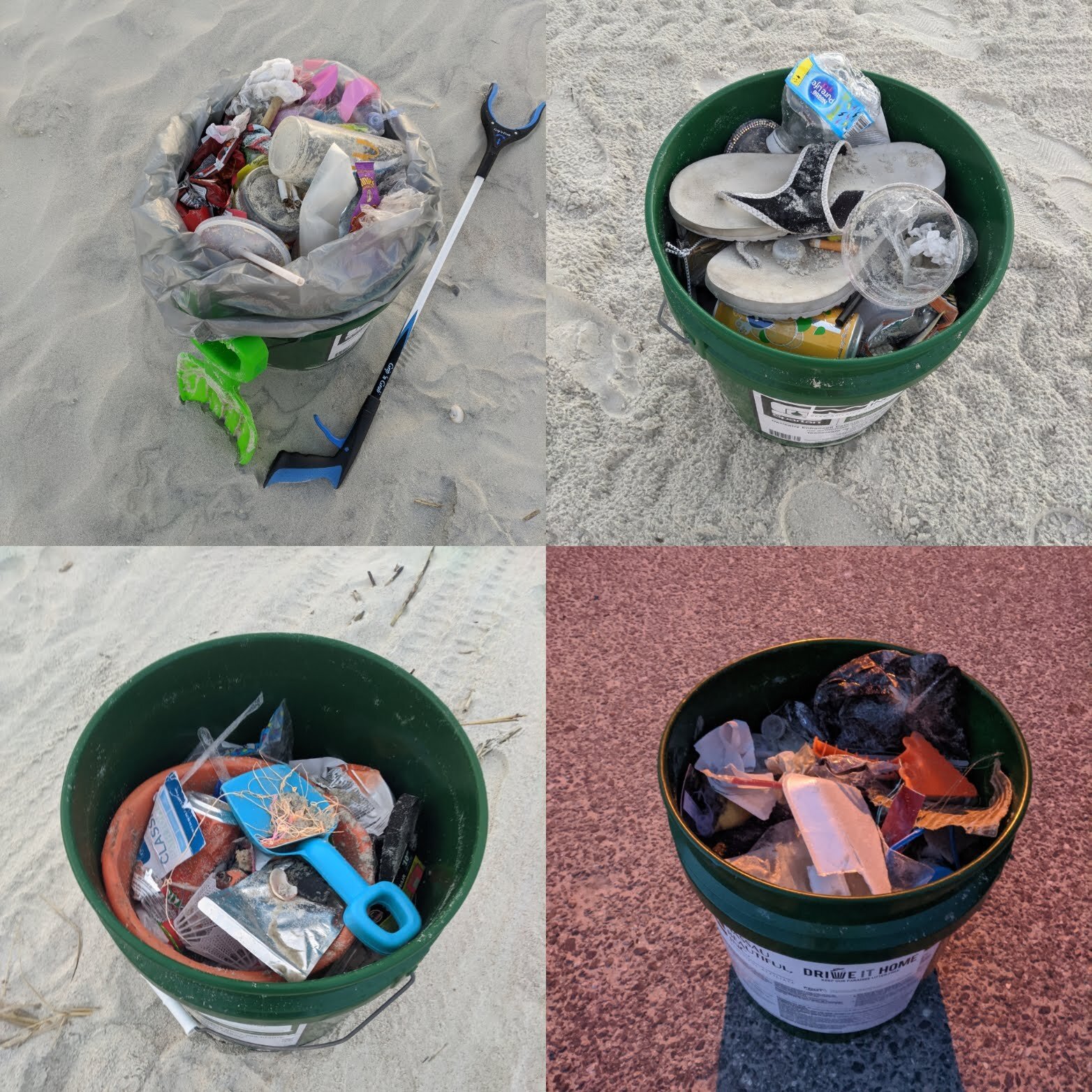No Easy Fix for Plastic Debris in Oceans
Report Details Recent Study on Surface Clean-Up Technologies
By Shari Roan
Some people may wonder why dozens of Amelia Island residents work so hard on summer evenings and after large storms to clean our beaches, stooping to pick up even tiny pieces of trash from the sand. It may take such individual effort to clean up our increasingly garbage-laden oceans. A recent study shows that surface clean-up technologies won’t get the job done.
Surface clean-up technologies – such as the project to address the great Pacific Garbage Patch – have received a lot of attention in recent years. High hopes have been placed on these devices, which are typically floating barriers that trap and scoop up trash. The new study, published this month in the journal Science of The Total Environment, compared estimates of plastic trash in oceans now and in the future based on the rates of trash entering oceans and the amount being removed by clean-up technologies. The researchers found that use of clean-up technologies has a “very modest” effect.
In short, clean-up technologies can’t keep pace with the amount of trash flowing into oceans.
Photos taken on Amelia Island by Beach Ambassadors.
"The important message of this paper is that we can't keep polluting the oceans and hoping that technology will tidy up the mess," said a study co-author Jesse F. Abrams, PhD, of the Global Systems Institute and the Institute for Data Science and Artificial Intelligence at the University of Exeter.
The study found that a more effective solution may be to use surface clean-up technologies with river barriers that prevent waste from entering the ocean. River barriers, however, are unlikely to be installed on large rivers because they interfere with shipping.
If we look to ourselves for a solution, we can have an impact. Minimize your purchase of plastic products, and look for non-plastic alternatives. For people who enjoy the beach, carefully clean up after yourself and avoid bringing items to the beach that are especially problematic: plastic straws, plastic food wrappers, plastic bottles and bottle caps and single-use plastic food utensils.
Ultimately, changing human behavior is at the core of the solution.
"Plastic is an extremely versatile material with a wide range of consumer and industrial applications, but we need to look for more sustainable alternatives and rethink the way we produce, consume and dispose of plastic," said study co-author, Agostino Merico, PhD, a professor at the Leibniz Centre for Tropical Marine Research and Jacobs University.
The study was completed by the University of Exeter, the Leibniz Centre for Tropical Marine Research, the Leibniz Institute for Zoo and Wildlife Research, Jacobs University and Making Oceans Plastic Free.
Source: Science of The Total Environment, Volume 746, 1 December 2020, 141115.
